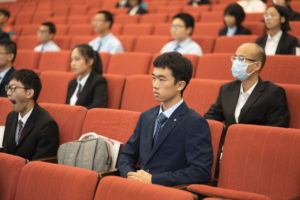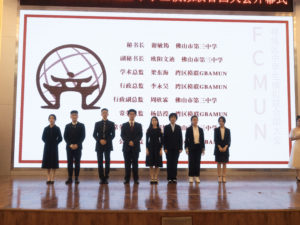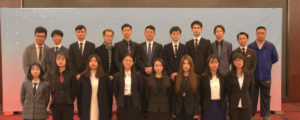Model United Nations has a wide audience and is really pleasant, but we realize that only when students have a certain basic knowledge and skill reserves can participants better integrate into the conference and improve themselves.
The GBAMUN series of training courses mainly cover four core contents: Public Speaking & Debate skills, Documentary ability, Negotiation and Diplomatic skills as well as understanding of international organizations and global issues. Our aim is helping students to develop better communication skills, increase one’s self-esteem, and develop persuasion skills.
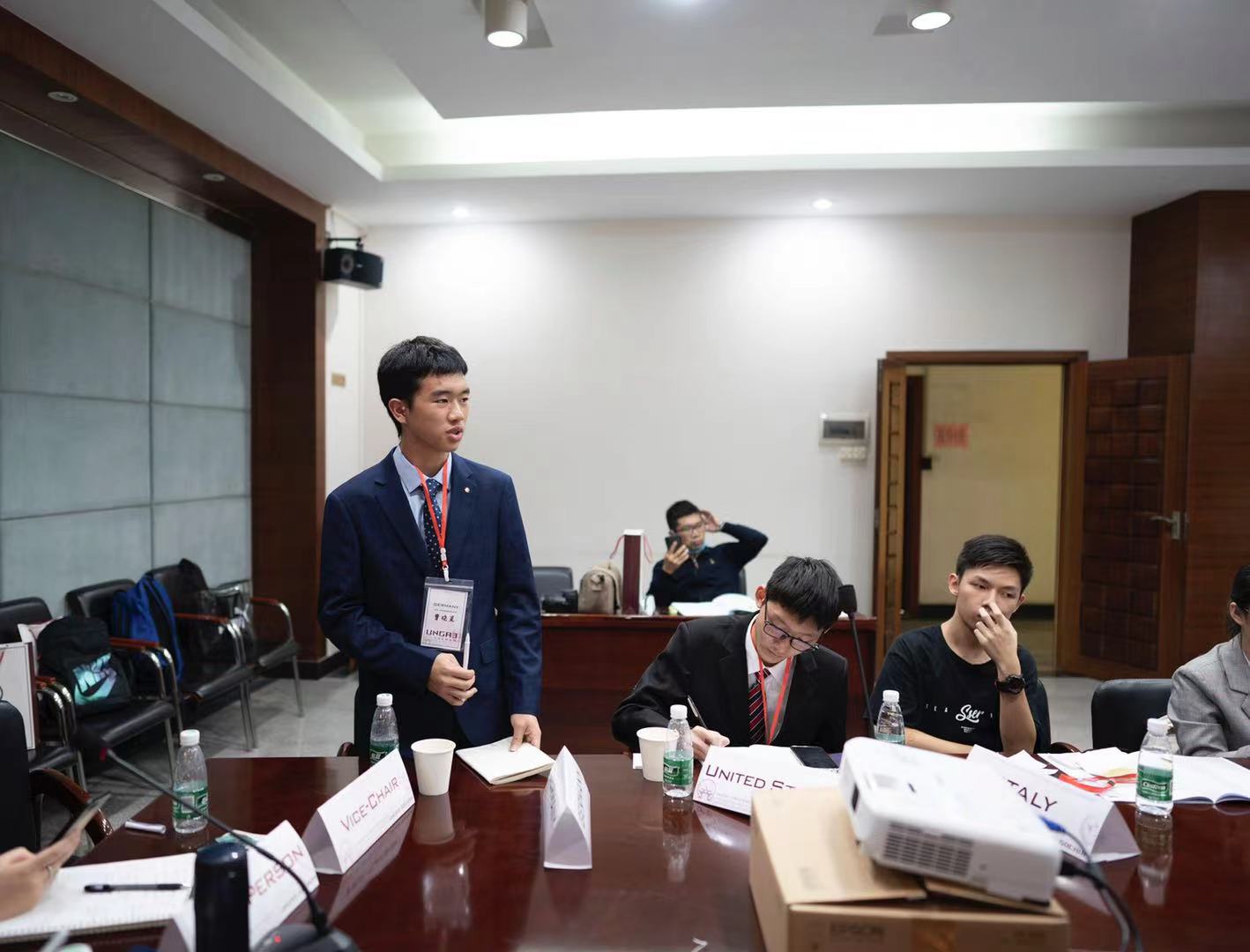
What are MUN courses all about?
Our courses contain a series of lectures, workshops, quizzes and essays. Through our MUN programs, students will have an in-depth experience learning about diplomacy and sophisticated political concepts, as well as developing holistic skills needed for the 21st century. By the end of the course, students will possess the necessary skills to compose and deliver fluent and substantive speeches across various prompts, topics, and scenarios; we will also help learners develop important analysis, communication, and policy-based skills.
What students will gain?
At the end of the course, all students will receive course certificates and souvenirs,
and all outstanding students will gain a certificate of merit and trophies.
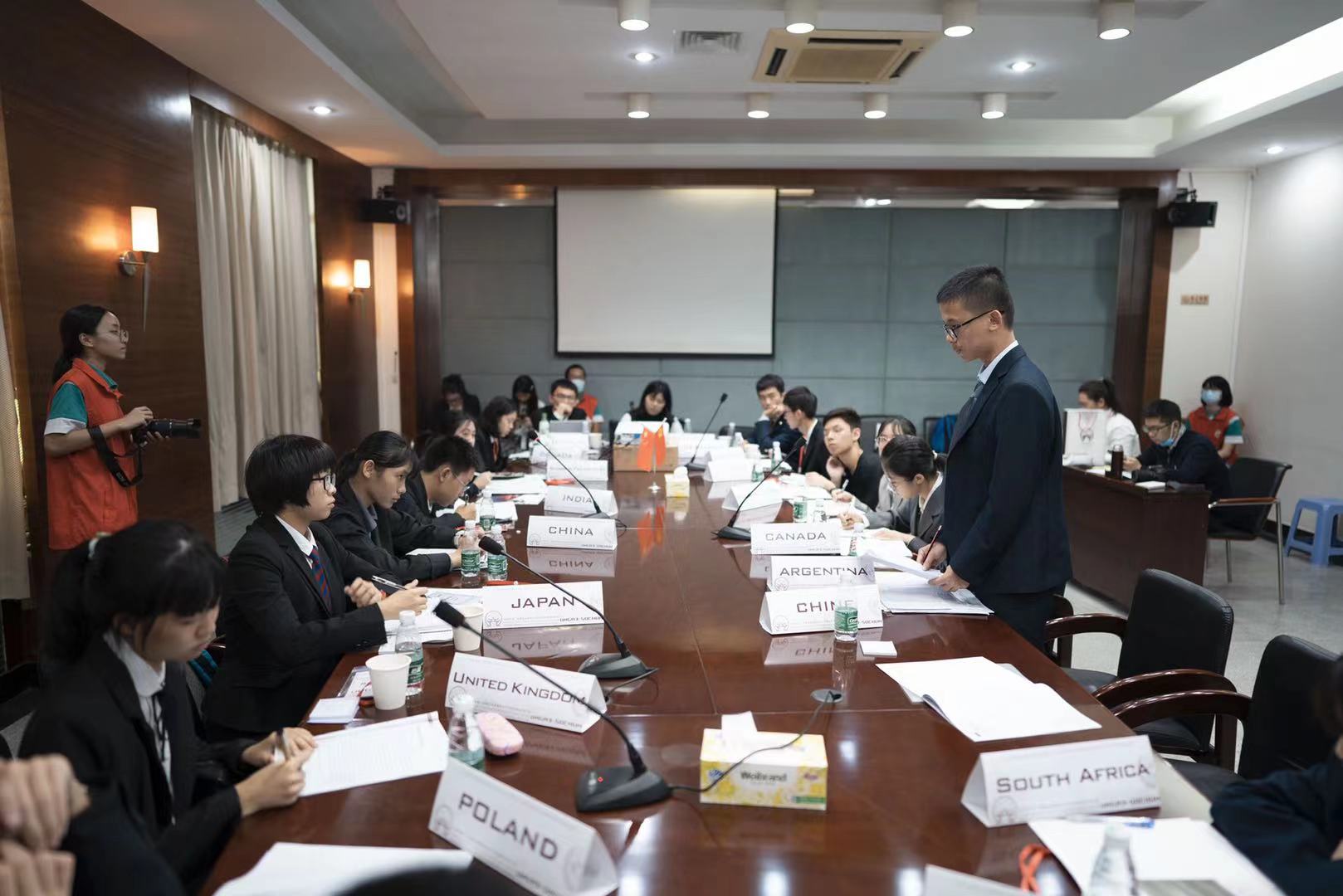
How to join or cooperate with us?
If you sign up for our GBAMUN conference, we will provide free lectures on overview of Model United Nations activities and representative basic skills in course syllabus; At the same time, we also provide relevant services for schools that are interested in setting up a Model United Nations Association or teaching students knowledge of the Model United Nations. Please refer to the following MUN weekly-lecture projects we cooperate with schools.
Course Syllabus
1.1. Origin, development and philosophy
1.2. Academic concept and meeting format
1.3. Introduction to the main conference carriers
2.1 Rules of Procedure (Chinese-English bilingual teaching)
2.2 Conference speech and debate explanation (Chinese-English bilingual teaching)
2.3 Language and writing
2.4 Data collection, sorting and analysis (including Chinese and foreign paper retrieval and conference document retrieval method explanation)
2.5 Goal awareness and methodology
2.6 Preparation for meeting selection and participation
2.7 Participation skills
2.8 Post-conference review method, summary and reflection
3.1. Introduction to International Relations and Diplomacy
3.2. Introduction to Geopolitics
3.3. Introduction to Macroeconomics
3.4. Introduction to International Law
4.1 Introduction to the complex UN family & its history
4.2 A series of ‘snapshots’ of key UN functions
4.3. North Atlantic Treaty Organization
4.4. Asian infrastructure investment bank,
G20, BRICs and Shanghai Economic Cooperation Organization
4.6. African Union and ASEAN
4.7. Other institutions
5.1 case study: EU enlargement and BREXIT
5.2 case study: NATO's eastward expansion and Ukraine war
5.3 case study: ASEAN community building and East Asian Cooperation
5.4 case study: sustainable development and climate change
6.1. Conference Design Method
6.2. Rules of procedure theory
6.3. Presupposition and deduction
6.4. Preside over the meeting
6.5. Representative thinking and behavior guidance
6.6. Assignment and correction before the meeting
6.7. Reflection and replay
School cooperation case
A good example of cooperation is our cooperation with the school of Continuing Education Department of Shanghai Jiaotong University, where we provide weekly MUN courses for A-level students from 2019 to 2020. We also assisted the school in establishing a Model United Nations Association and in recruiting members.
Our training guidebook and materials are complete, which is elaborately compiled by excellent MUNers from all over the world with long-term practical experience and selected background in various fields.After repeated verification and modification, it shows clear course objectives and moderate amount of information, reflects well acceptance, strong interest and good practical effect, and is widely praised by students and the schools’ management team.
We hired experienced MUN presidents with a distinctive teaching style and strong academic background to give weekly lectures . We also invited some well-known MUN presidents to organize workshops and debate competitions for students. At the same time, in order to ensure that the information in the course keeps pace with the times, the academic team regularly follows up, re-evaluates and updates the course materials, and timely modifies them according to the feedback of the cooperative school community, so as to ensure the quality of the course. At the end of the project, we got a high score of evaluation.


